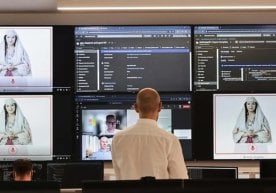The gap between rich and poor is growing due to artificial intelligence

The rapid development of artificial intelligence (AI) and automation, while creating new opportunities for the global economy, is also deepening the problem of global inequality. According to a report by the United Nations Conference on Trade and Development (UNCTAD), these technologies will have a significant impact on the global labor market over the next decade.
40 percent of professions are under threat
According to UNCTAD analyses, the value of the artificial intelligence market could reach $4.8 trillion by 2033. While this technology can help increase productivity and accelerate digital transformation, it can also have negative consequences for the labor market. The report notes that automation could affect 40 percent of jobs worldwide.
Experts note that this process will lead to an uneven distribution of economic benefits. That is, artificial intelligence mainly serves the interests of capital owners and reduces the value of labor resources. This is especially a serious problem for developing countries, since their economies are based on cheap labor.
Technological divide and global inequality
The development of technologies can further increase global economic inequality. According to UNCTAD, 40 percent of the funds spent on research and development on artificial intelligence are accounted for by 100 companies, mainly operating in the United States and China. The fact that the market capitalization of technology giants such as Apple, Nvidia and Microsoft is equal to the GDP of the entire African continent further widens the gap in the level of development between countries.
Caution and initiative are needed for developing countries
The UNCTAD report emphasizes that developing countries should actively participate in shaping international normative and ethical standards for the development and governance of AI. The UN recommends the implementation of the following measures:
- Ensuring transparency of data on AI - having accurate and open data to better understand the impact of AI technologies.
- Creating common infrastructure - expanding the possibilities of using AI.
- Supporting open AI models - equitable distribution of technological resources.
- Developing knowledge and resource exchange - creating opportunities for developing countries to exchange experiences and ideas.
Artificial Intelligence – Threat or Opportunity?
According to the UNCTAD report, artificial intelligence can be one of the main drivers of technological progress, but this process must be carried out on the basis of fairness and equal opportunities. It is important for states and international organizations to cooperate in regulating AI and developing it through strategic investments.
Today, as artificial intelligence penetrates various aspects of human life, it is necessary to carefully monitor its economic and social consequences and develop appropriate and safe strategies for each country. Only then can technological progress become a means of creating equal opportunities and sustainable development. Read “Zamin” on Telegram!
Ctrl
Enter
Found a mistake?
Select the phrase and press Ctrl+Enter 


















